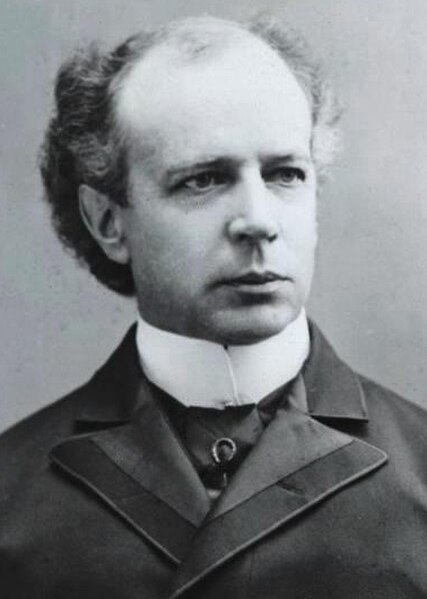Joseph-Napoléon-Henri Bourassa was a French Canadian political leader and publisher. In 1899, Bourassa was outspoken against the British government's request for Canada to send a militia to fight for Britain in the Second Boer War. Prime Minister Sir Wilfrid Laurier's compromise was to send a volunteer force, but the seeds were sown for future conscription protests during the World Wars of the next half-century. Bourassa unsuccessfully challenged the proposal to build warships to help protect the empire. He led the opposition to conscription during World War I and argued that Canada's interests were not at stake. He opposed Catholic bishops who defended military support of Britain and its allies. Bourassa was an ideological father of French-Canadian nationalism. Bourassa was also a defining force in forging French Canada's attitude to the Canadian Confederation of 1867.
Henri Bourassa
Maxime Raymond, André Laurendeau and Henri Bourassa (right) in 1944
Sir Henri Charles Wilfrid Laurier, was a Canadian lawyer, statesman, and politician who served as the seventh prime minister of Canada from 1896 to 1911. The first French Canadian prime minister, his 15-year tenure remains the longest uninterrupted term of office among Canadian prime ministers and his nearly 45 years of service in the House of Commons is a record for the House. Laurier is best known for his compromises between English and French Canada.
Laurier in 1906
Bedroom at Sir Wilfrid Laurier National Historic Site, Saint-Lin-Laurentides, Quebec
Laurier in 1874
Opposition Leader Laurier, 1890






